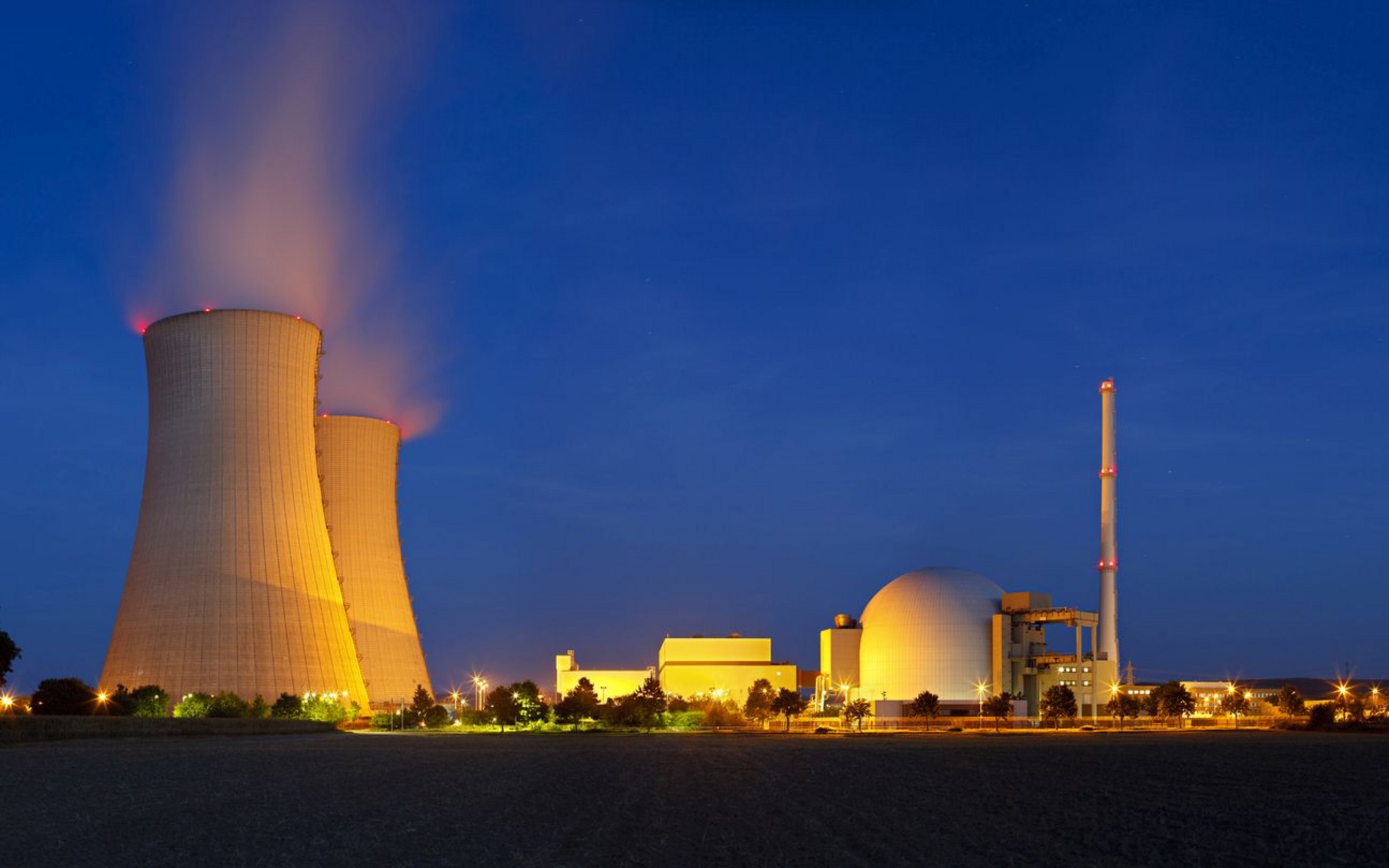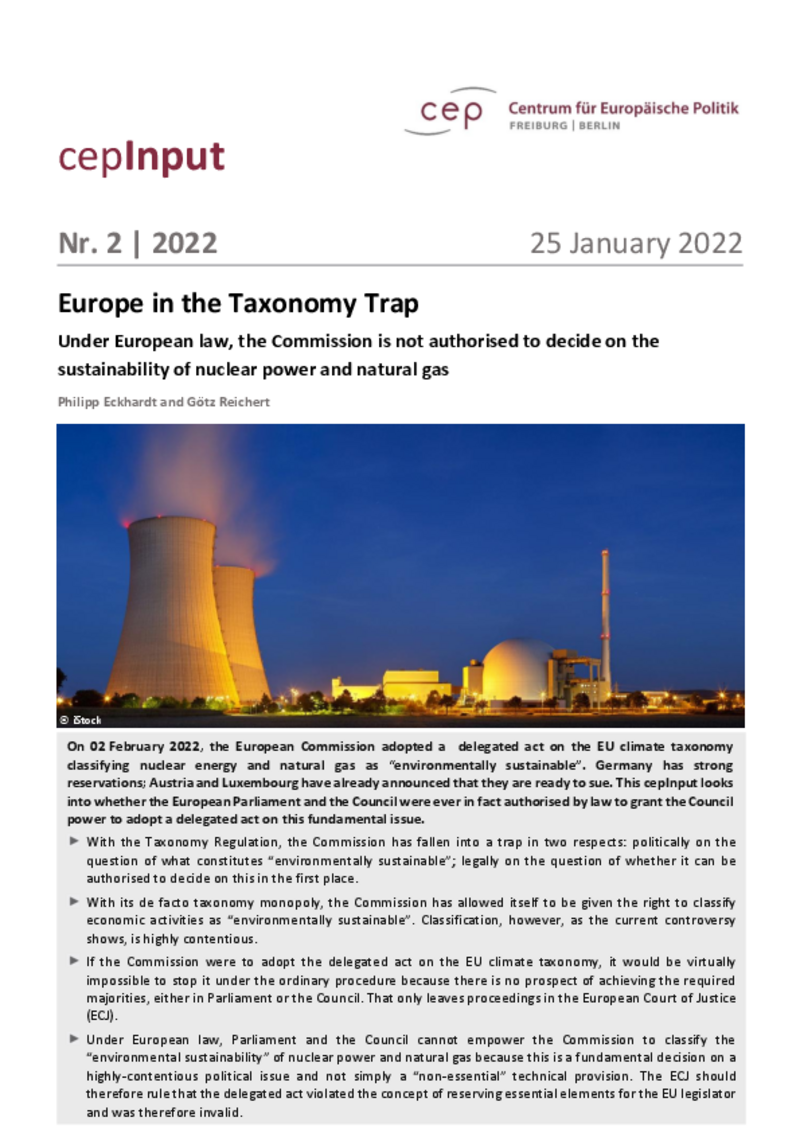
Energy
Europe in the Taxonomy Trap (cepInput)
cepInput
"Under European law, the Commission is not allowed to decide on the sustainability of nuclear power and natural gas," emphasises cep lawyer Götz Reichert, who analysed the plan with cep economist Philipp Eckhardt. On 31 December 2021, the Commission presented a draft delegated act on EU climate taxonomy. According to it, it wants to classify nuclear energy and natural gas as "environmentally sustainable". Germany has strong reservations, Austria and Luxembourg have already announced lawsuits.
"With the taxonomy regulation, the Commission has manoeuvred itself into a double trap: politically on the question of what should be considered ecologically sustainable, legally on the question of whether it can be authorised to decide on this at all," says Eckhardt. With its de facto monopoly on taxonomy, the Commission has given itself the right to classify economic activities as "ecologically sustainable". However, as the current controversy proves, a classification is highly controversial, at least for nuclear energy and natural gas.
Precisely for this reason, because the issue is highly controversial, an action before the European Court of Justice (ECJ) would have to succeed, according to Reichert, since it is not just a "non-essential", detailed technical regulation. "The ECJ would therefore have to rule that the delegated act violates the materiality proviso in favour of the EU legislator and is therefore null and void," Reichert explains. The Federal Government had made it clear in its statement that Germany was at least keeping open the option of bringing an action before the ECJ on the grounds of violation of the materiality requirement under Article 290 TFEU.
Download PDF
| Europe in the Taxonomy Trap (cepInput) (publ. 01.25.2022) | 366 KB | Download | |
 | |||




